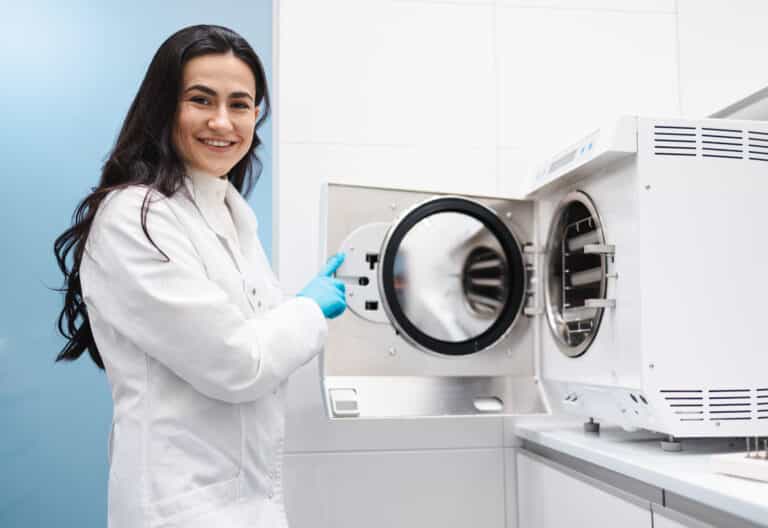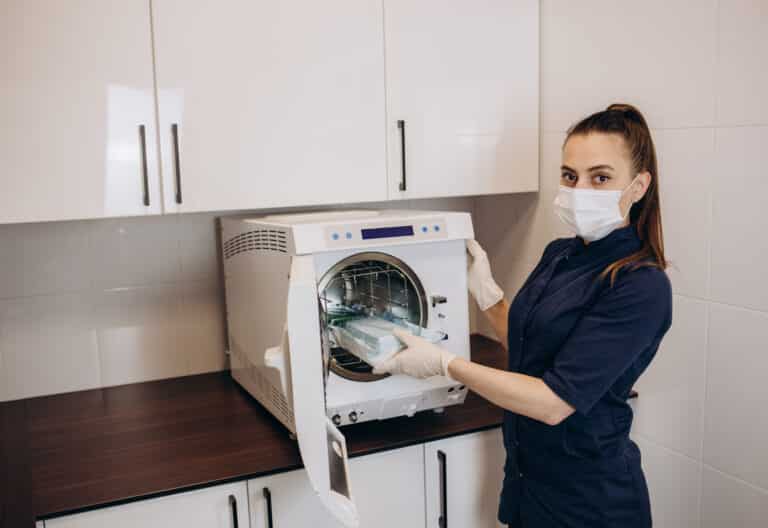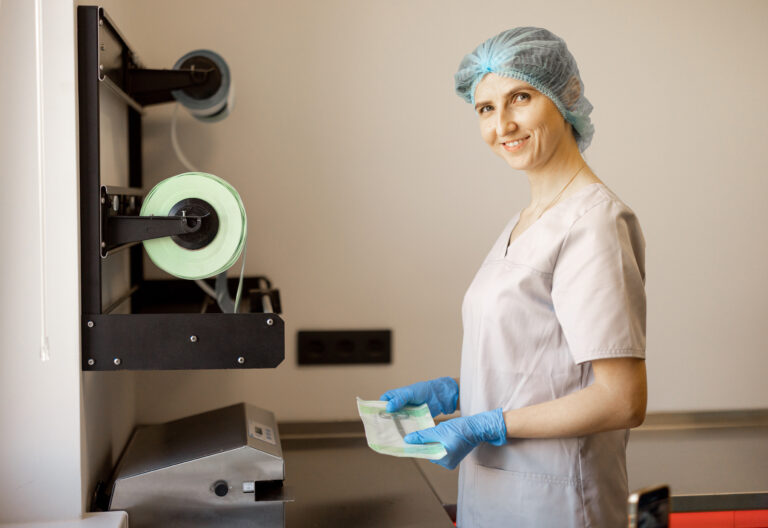Have you ever wondered how medical equipment in hospitals remains impeccably clean and free from contamination? The answer lies in the critical work of Sterile Processing Technicians (SPTs). These healthcare professionals are responsible for sterilizing surgical and medical instruments, but their role encompasses much more than just cleaning. So let’s explore the sterile processing technician duties and highlight the essential skills needed to excel in this vital healthcare role.
Sterile Processing Technician Duties
Sterile Processing Technicians, also known as Central Sterile Technicians or Sterile Supply Technicians, are the unsung heroes of the healthcare industry. They play a crucial role in ensuring that all medical instruments used in surgeries and other medical procedures are thoroughly cleaned, sterilized, and ready for use. Their work is essential to patient safety and the smooth operation of healthcare facilities. Here are the most important sterile processing technician duties:
1. Cleaning and Decontamination
One of the first and most critical Sterile Processing Technician duties is the cleaning and decontamination of medical instruments. Medical instruments are expensive, and it is not feasible to discard them after a single use. However, reusing them without proper cleaning and decontamination can lead to severe consequences, including infections and complications during medical procedures.
The Cleaning Process
Once medical instruments are used, they are sent to the sterile processing department for decontamination. Sterile Processing Technicians meticulously wash, rinse, and clean these instruments, removing blood, tissues, body fluids, visible debris, and other contaminants. This step is essential before the instruments can be sterilized.
Importance of Decontamination
Decontamination is a critical process because if any contaminants remain on the instruments, the sterilization process may be compromised. Contaminants can include organic material such as blood or tissue, as well as inorganic substances like dirt or dust. If not properly removed, these contaminants can harbor harmful microorganisms, leading to potential infections or other complications during subsequent medical procedures. Therefore, attention to detail during the cleaning process is paramount for a Sterile Processing Technician.
2. Sterilization Processes
After thorough cleaning and decontamination, the next step is sterilization. Sterilization is the process of eliminating all forms of microbial life, including bacteria, viruses, and spores, from medical instruments. This step is crucial in ensuring that the instruments are safe for use in medical procedures.
How Sterilization Works
In the sterilization phase, Sterile Processing Technicians place the decontaminated medical instruments into designated pans, trays, or peel packs. These trays are then loaded into an autoclave, a specialized machine used for sterilization. The autoclave uses high-pressure steam at specific temperatures to kill any remaining microorganisms on the instruments.
Sterile Processing Technicians are responsible for setting up the autoclave equipment at the correct temperature and pressure for the appropriate duration. This careful control of sterilization parameters ensures that the instruments are thoroughly sterilized and safe for use.
Importance of Sterilization
Sterilization is a vital step in preventing infections and ensuring the safety of patients. If the sterilization process is not conducted correctly, there is a risk of harmful microorganisms remaining on the instruments, which could lead to serious complications during medical procedures. Therefore, Sterile Processing Technicians must have a deep understanding of the sterilization process and the importance of maintaining a sterile environment.
3. Assembly and Packaging
Once the instruments have been sterilized, the next step is assembling and packaging them into sets or kits. Proper assembly and packaging are crucial to ensuring that healthcare professionals can easily access the instruments they need during medical procedures.
The Assembly Process
Sterile Processing Technicians carefully assemble the sterilized instruments into sets according to the specific needs of different medical procedures. Each set must be complete and arranged systematically to ensure that healthcare providers can quickly find the instruments they need.
Packaging and Labeling
After assembly, the instruments are packaged and labeled for storage or transport. Accurate labeling is essential to ensure that the correct instruments are available when needed. If the packaging or labeling is incorrect, the instruments may need to be returned to the sterile processing department, and the entire decontamination and sterilization process must be repeated before they can be used again.
4. Inventory Management
Inventory management is another critical duty of a Sterile Processing Technician. They must perform routine checks to ensure that all equipment is in the right place and accounted for. Effective inventory management ensures that the sterile processing department operates efficiently and that there are no shortages of essential instruments.
Monitoring Equipment
Sterile Processing Technicians are responsible for monitoring the condition of medical instruments and equipment. If something is damaged or worn out, they must report it to their supervisors. This proactive approach helps prevent the use of faulty equipment, which could compromise patient safety.
Ordering New Equipment
In some cases, Sterile Processing Technicians may be tasked with ordering new equipment or supplies. This responsibility requires a good understanding of the department’s needs and the ability to maintain detailed inventory records. By ensuring that all necessary equipment is available, Sterile Processing Technicians contribute to the overall efficiency and effectiveness of the healthcare facility.
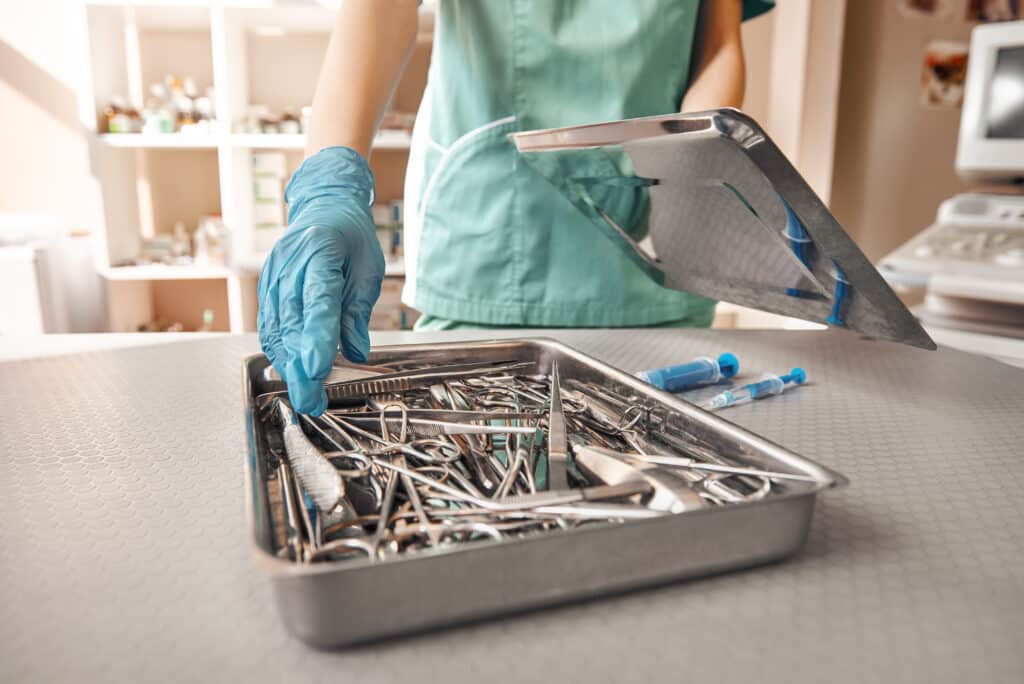
You May Also Like:
-CRCST Certification
-Sterile Processing Technician Course
-How to Become a Sterile Processing Technician
Essential Skills for a Sterile Processing Technician
To excel as a Sterile Processing Technician, several key skills are essential. These skills not only enhance the technician’s ability to perform their duties effectively but also contribute to the overall safety and success of the healthcare facility.
1. Attention to Detail
Attention to detail is perhaps the most crucial skill for a Sterile Processing Technician. From cleaning and decontaminating instruments to assembling and packaging them, every step requires precision and accuracy. A small mistake, such as missing a spot during cleaning or mislabeling a package, can have serious consequences.
Why Attention to Detail Matters
In the sterile processing department, even the smallest oversight can lead to contamination or the use of incorrect instruments during a procedure. This could result in infections, complications, or delays in medical treatment. Therefore, Sterile Processing Technicians must be meticulous in their work, paying close attention to every detail to ensure that all instruments are properly cleaned, sterilized, and ready for use.
2. Technical Proficiency
Sterile Processing Technicians must be technically proficient in operating and maintaining sterilization equipment and machinery. This includes understanding how autoclaves and other sterilization devices work, as well as knowing how to troubleshoot any issues that may arise.
Knowledge of Medical Instruments
In addition to technical proficiency with equipment, Sterile Processing Technicians must also be well-versed in the various medical and surgical instruments they handle. They need to know the names, functions, and proper handling techniques for a wide range of instruments. This knowledge is essential for correctly assembling instrument sets and ensuring that each instrument is in optimal condition for use.
3. Organizational Skills
Organizational skills are vital for managing inventory, keeping track of supplies, and arranging instruments systematically. A well-organized sterile processing department ensures that instruments are readily available when needed and that the workflow is efficient.
Managing Inventory
Sterile Processing Technicians must keep accurate records of inventory, including tracking the number of instruments, their condition, and their location. This requires strong organizational skills and the ability to manage multiple tasks simultaneously.
Systematic Arrangement of Instruments
When assembling instrument sets, Sterile Processing Technicians must arrange the instruments systematically to ensure that they are easy to access during medical procedures. This requires a keen sense of organization and an understanding of the specific needs of different medical procedures.
4. Communication Skills
Effective communication is essential for Sterile Processing Technicians, as they must regularly interact with healthcare staff regarding instrument availability and other issues. Clear communication ensures that the needs of healthcare providers are met and that any potential issues are addressed promptly.
Communicating with Healthcare Staff
Sterile Processing Technicians must be able to communicate clearly with surgeons, nurses, and other healthcare professionals to ensure that the correct instruments are available for each procedure. This requires good listening skills and the ability to convey information accurately and efficiently.
Team Management
In some cases, Sterile Processing Technicians may be responsible for managing a team. In these situations, strong communication skills are necessary to outline each team member’s responsibilities and ensure that everyone is working together effectively.
5. Adherence to Protocols
Strict adherence to safety protocols and guidelines is a non-negotiable aspect of a Sterile Processing Technician’s role. Maintaining a sterile environment is crucial to preventing infections and other critical issues.
Importance of Protocols
Sterile Processing Technicians must be familiar with the protocols and guidelines related to cleaning, sterilization, and the handling of medical instruments. By strictly following these protocols, they help ensure that all instruments are safe for use and that the risk of contamination is minimized.
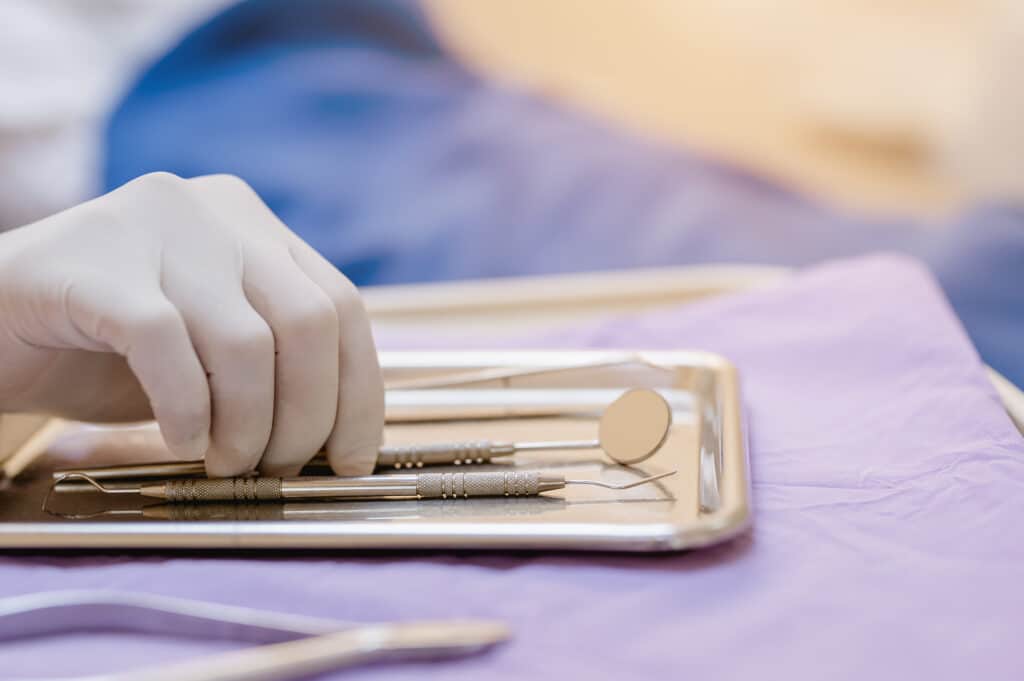
Become an Expert With Preppy’s Sterile Processing Technician Online Course

Sterile Processing Technicians play a vital role in the healthcare industry, ensuring that medical instruments are thoroughly cleaned, sterilized, and ready for use. Their work is essential to patient safety and the smooth operation of healthcare facilities. By developing the key skills of attention to detail, technical proficiency, organizational skills, communication skills, and adherence to protocols, Sterile Processing Technicians can excel in their role and contribute to the overall success of the healthcare facility.
If you are considering a career as a Sterile Processing Technician, understanding these duties and skills is the first step toward success. With the right sterile processing technician training and dedication, you can become an integral part of the healthcare team, ensuring that patients receive the highest standard of care.
Also read: How to Become a Sterile Processing Technician Faster
About:
Preppy was founded by higher education expert, Grant Aldrich, whose work on college affordability and accessibility has been featured in Forbes, Bloomberg Businessweek, Business Insider, American Express, AOL, MSN, Thrive Global, Reader’s Digest, Inside Higher Ed, Evolllution, EducationDive, and nearly 100 radio shows and podcasts.
Time is money. Instead of programs that could take 2 years, Preppy provides you with education in a few months through immersive online training.
Healthcare, IT, Business, Trades…Preppy gets you ready for the trending careers in our modern economy.
Our team of higher education and startup veterans has created the best solution so everyone can obtain the emerging careers of today and tomorrow.
We look forward to speaking with you. You may also call 800-729-1317.
Sterile Processing TechSterile Processing TechnicianSterile Processing Technician duties

